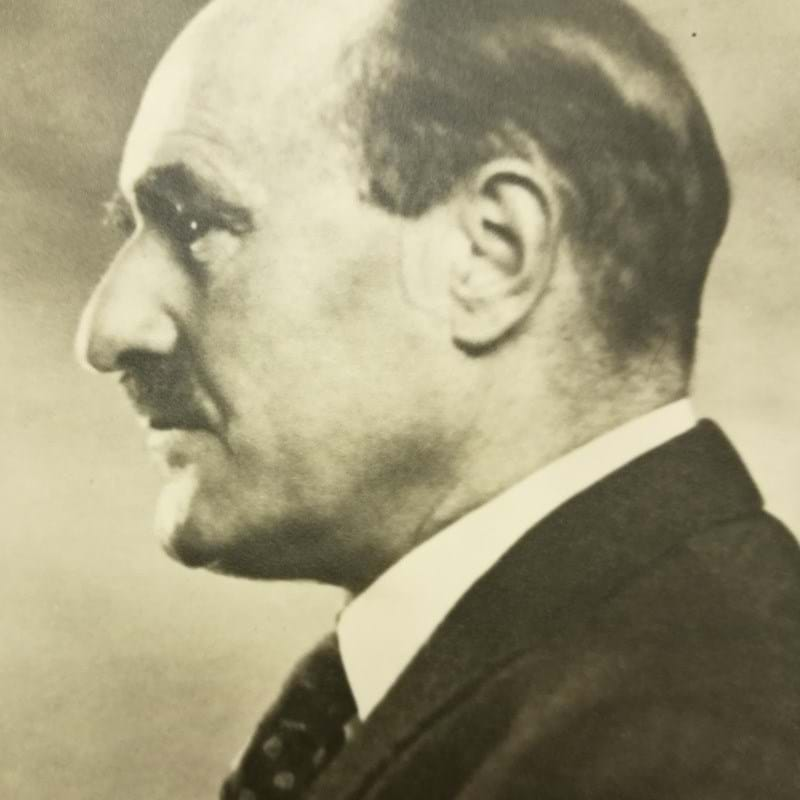
Dudley Maurice Newitt MC FRS: 1949–1951
Born in 1894, Dudley Newitt's early career was spent at Ardeer with Nobels. On the outbreak of hostilities in 1914, being a keen Territorial, he was called to the Forces and served throughout the war with the Indian Army, both in the East and in France. He attained the rank of Major and was awarded the Military Cross.
After the war he found himself at the Royal College of Science (a constituent college of Imperial College from 1907) among a notable group of returned students, many of whom attained not only academic distinction but fame in their after-careers. He obtained a First in his chemistry degree, accompanied by the Governors' Prize in Practical Chemistry. This was the start of his long association with the Department of Chemical Technology at the College. Dudley Newitt first came under the direction of Hinchley, whose teaching was of a pioneering and imaginative character, and whose students were encouraged to adventure into new and unexplored fields. He was a main contributor to the rapid growth of the South Kensington Department and during the inter-war years postgraduate students from all over the world were attracted to the high pressure laboratories which he had developed. In 1945 he was appointed to the Courtaulds Chair of Chemical Engineering at the College.
His leadership in engineering science was revealed by his many publications including "High Pressure Plant and Fluids at High Pressure" (1940), and his sections of Euken's "Der Chemie-Ingenieur". In pure chemical science he contributed series of papers on the oxidation of hydrocarbons, equilibria in gaseous systems and the properties of plastics; and chemical engineers are familiar with his work on unit processes concerned with the drying of solids, crystallisation, pneumatic and hydraulic conveying of solids, agitation and mixing, and scrubbing. Many of his publications appeared in the Proceedings of the Royal Society, to the Fellowship of which he was elected in 1942.
His involvement with the Institution has included long terms on Council, the Education and Publications Committees, and he was also an Examiner in Associateship examinations. He was awarded the Moulton Medal in 1936 for his paper on "The Design of Vessels to withstand High Internal Pressures", and the Osborne Reynolds Medal in 1946 for his services to the Institution during that year.
He also served on numerous Government Committees and took a leading part in the deliberations of the Heyworth Committee of Inquiry into the Gas Industry (1944). During the late war, in his capacity as Director of Scientific Research of the Inter-Services Research Bureau, he rendered national service of a high order known only to few.
Return to list